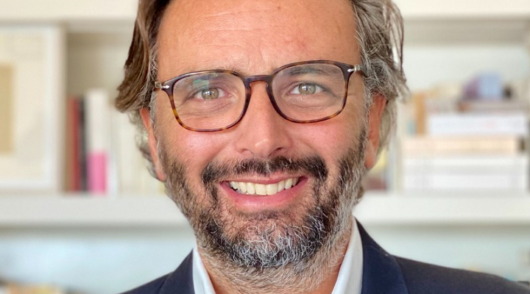Last month, Indy Clinton opted not just to promote Bouf Haircare but to own it, flipping the conventional influencer playbook. In Australia, ambassador deals remain the dominant norm, but Clinton forced an evaluation that creators may no longer be the “downstream” activators of brand equity. Now, they can become the upstream equity holders. Clinton’s move was not an isolated celebrity stunt, but a crystallisation of several variables redefining how influence, capital and brand-buildi
building intersect.
Ripping up the script
Clinton “ripped up” her original ambassador contract before launch, replacing it with an equity partnership with Bouf, a haircare label under York Street Brand’s umbrella.
“It wasn’t just about posting Bouf on my social channels,” Clinton told Inside Retail.
“I wanted to immerse myself in the brand and be a part of the team and the office culture. From strategy sessions to the BTS of decision making, it felt so rewarding on every level, a reminder I can thrive as both a mother and a professional.”
Clinton framed it as rediscovery.
“I have never worked in a corporate environment before, so the idea of throwing myself into something completely new felt really exciting. … After having three kids, stepping into that world was such an empowering move.”
Bouf’s founder, Rachael Wilde, described the shift as intuitive, claiming the mutual trust Indy had with Bouf and York St Brands was instantaneous. Wilde’s framing is also important as she sees this not as charity or gimmick, but as a structural marriage of creative and corporate muscle.
“A lot of influencers are looking to start their own brands and businesses these days, but what you’re seeing in the US is more and more influencers stepping into this business space in more of an investor or joint venture capacity,” Wilde told Inside Retail.
That blending is the real story. For Clinton, her portfolio role now spans event strategy, influencer scouting, content creation, product ideation and more. She is no longer a “paid promoter” but a co-architect.
Creator-investors in the wild
Clinton’s leap feels bold in Australia, but internationally, we’re seeing more experiments, though not always clean ones.
One instructive case is the US-based D’Amelio family. After amassing vast followings and commercial partnerships across fashion, beauty and lifestyle, Charli and Dixie D’Amelio announced in 2022 the creation of D’Amelio Brands, a “house of brands” backed by roughly $6 million in seed funding.
On the influencer-investor front, Alix Earle has pursued equity-based collaborations, most notably with the prebiotic soda brand Poppi, where her involvement extended beyond paid content to partial ownership.
Recently, Earle invested in the canned cocktail brand SipMargs, combining promotional influence with a financial stake.
What Indy’s leap reveals (and risks)
Clinton’s move sends a few signals worth unpacking for the retail and beauty sectors.
For one, the rules of negotiation are shifting: for high-trust, high-engagement creators, brands may be asked to trade guaranteed fees for earn-in equity.
Retailers, too, are learning the pull of partnership over placement. Having Clinton’s name in the ownership story added marketing heft for retailers.
“When we first sat down with Priceline and Farmers, they were genuinely excited about the concept of Bouf not just as a product, but as a marketing strategy in itself,” Wilde added.
“Having Indy as part of our strategy gave them confidence that we could launch with immediate cut-through.”
The boundaries of influence are blurring, as influencers begin to shape R&D, brand architecture and operations, their fortunes rising and falling with the brand itself.
Over time, as influencer-investors expand their portfolios, power consolidates. They move beyond endorsement into equity, reshaping who really owns attention and its rewards.
Australia’s inflexion point
Australia has seen influencer-led beauty labels before, but rarely with creators as equity stakeholders from day one.
Most have followed a licensing or ambassador model. Clinton’s stake deal may feel new, but retail observers will watch whether more creators demand the same leverage.
If Bouf meets its first-year revenue target of $8–10 million and gives backers a clear path to return, we could expect a wave of Aussie beauty creator equity partnerships in the next two years.
When creators realise that they can skip the ambassadorship middleman and move directly to shareholders, the incentive structure changes.
If retail chains including Priceline, Chemist Warehouse and department store beauty shelves begin to require new brands to bring an influencer as an equity co-founder, that could institutionalise this trend.
The risk, though, is that brands may cede too much control too early, or misprice equity relative to growth potential.
Indy Clinton’s transition from TikTok storyteller to shareholder is a prelude. It suggests that the future of creator careers may not be campaigning, but co-founding.
In markets accustomed to one-off contracts, her move challenges both brands and retailers to think more collaboratively, not just transactionally.







